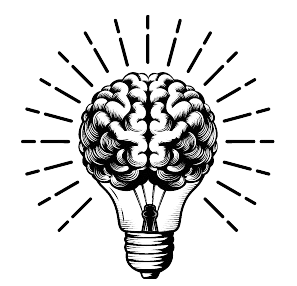Analytic philosophy is known for its rigorous methods, clarity, and precision. The methods of Analytic Philosophy helps in gaining elaborative knowledge of such vigorous field. This blog post delves into the various methods used in analytic philosophy, exploring how these techniques contribute to its distinct approach and highlighting insights from notable philosophers.
The Essence of Analytic Philosophy
Analytic philosophy emphasizes the logical analysis of language and concepts, striving for clarity and argumentative rigor. It often contrasts with continental philosophy, which may emphasize broader cultural and historical contexts and literary expression.
Key Methods in Analytic Philosophy
1. Logical Analysis
Logical analysis among other methods of analytic philosophy is a cornerstone of analytic philosophy. This method involves breaking down philosophical problems into their component parts and examining the logical structure of arguments.
- Gottlob Frege: Frege’s work on formal logic, particularly his development of predicate logic, provided tools for precise argumentation. His focus on the logical form of propositions allowed philosophers to analyze the structure of arguments systematically.
- Bertrand Russell: Russell applied logical analysis to various philosophical problems. His theory of descriptions, introduced in “On Denoting” (1905), demonstrated how logical analysis could resolve issues related to reference and meaning in language.
2. Conceptual Analysis
Conceptual analysis among other methods of analytic philosophy involves examining the concepts and terms used in philosophical discourse to clarify their meanings and relationships.
- G.E. Moore: Moore’s method of conceptual analysis, as seen in “Principia Ethica” (1903), focused on analyzing ethical concepts such as “good” to uncover their fundamental nature. This approach aims to provide clearer definitions and avoid ambiguities.
- Ludwig Wittgenstein: Wittgenstein’s later work, particularly in “Philosophical Investigations” (1953), emphasized the analysis of how concepts are used in ordinary language. He introduced the idea of “language games,” highlighting the contextual nature of meaning.
3. Thought Experiments
Thought experiments among other methods of analytic philosophy are hypothetical scenarios used to test philosophical intuitions and explore the implications of various theories.
- John Searle: Searle’s famous “Chinese Room” thought experiment challenges the notion of strong artificial intelligence by questioning whether syntactic processing alone can produce understanding.
- Frank Jackson: Jackson’s “Mary’s Room” thought experiment explores the nature of consciousness and qualia, raising questions about the limitations of physicalism.
4. Formal Methods
How Different Cultures Perceive Beauty and Art and Aesthetics in the Light of Western Philosophers
Formal methods among other methods of analytic philosophy involve the use of mathematical and logical techniques to analyze philosophical problems.
- Saul Kripke: Kripke’s work in modal logic, particularly in “Naming and Necessity” (1980), uses formal methods to address issues related to necessity, possibility, and identity. His work has had a profound impact on the philosophy of language and metaphysics.
- David Lewis: Lewis employed formal methods in his analysis of counterfactuals and possible worlds, providing a rigorous framework for understanding modal concepts.
5. Ordinary Language Philosophy
Ordinary language philosophy focuses on the everyday use of language to clarify philosophical problems.
- J.L. Austin: Austin’s work, particularly in “How to Do Things with Words” (1962), emphasized the performative aspects of language. He analyzed how ordinary language is used in different contexts to perform various actions, such as making promises or giving orders.
- Gilbert Ryle: Ryle’s “The Concept of Mind” (1949) critiques the Cartesian dualism of mind and body by analyzing the ordinary language use of mentalistic terms. He argues that many philosophical puzzles arise from misunderstandings of how language is used.
The Impact of Analytic Methods
The methods used in analytic philosophy have several significant impacts:
- Clarity and Precision: By emphasizing logical and conceptual analysis, analytic philosophy strives for clear and precise arguments, reducing ambiguities and misunderstandings.
- Rigorous Argumentation: The focus on formal methods and logical structure ensures that philosophical arguments are rigorously evaluated for validity and soundness.
- Practical Relevance: Ordinary language philosophy highlights the practical relevance of philosophical inquiry by connecting it to everyday language and experiences.
- Interdisciplinary Influence: The use of formal methods bridges philosophy with other disciplines, such as mathematics, computer science, and linguistics, fostering interdisciplinary collaboration and innovation.
Conclusion
The methods of analytic philosophy employs including logical analysis, conceptual analysis, thought experiments, formal methods, and ordinary language philosophy. These techniques, among other methods of analytic philosophy, contribute to its distinctive approach, characterized by clarity, precision, and rigorous argumentation. Influential philosophers like Frege, Russell, Wittgenstein, Moore, and Kripke have shaped these methods, demonstrating their power to address complex philosophical problems.
References
- Frege, Gottlob. “Begriffsschrift” (Concept Script), 1879.
- Russell, Bertrand. “On Denoting,” 1905.
- Moore, G.E. “Principia Ethica,” 1903.
- Wittgenstein, Ludwig. “Philosophical Investigations,” 1953.
- Searle, John. “Minds, Brains, and Programs,” 1980.
- Jackson, Frank. “Epiphenomenal Qualia,” 1982.

